Mozambique President Daniel Chapo addresses United Nations General Debate - Watch
Mozambique: EU wants greater cooperation with Rwanda

File photo: Lusa
The European Union (EU) wants to have greater cooperation with Rwanda in the areas of security and defence, recognising the country’s “efforts” to stabilise northern Mozambique and the Central African Republic, an official source told Lusa on Wednesday.
“The European Union (EU) intends to intensify cooperation with Rwanda, particularly in the areas of security and defence,” an EU spokesman said in response to questions posed by Lusa.
Asked whether this does not contradict EU criticism of restrictions on freedoms in the country under the leadership of President Paul Kagamé, the same source says it is time to recognise stabilisation work.
“The EU recognises Rwanda’s considerable efforts to help stabilise the security situation in Mozambique and the Central African Republic and seeks an effective operational and information exchange with the Rwandan armed forces deployed in the country,” he said.
For now, what is underway is a European Union Training Mission (EUTM) aimed at preparing Mozambican troops to fight in Cabo Delgado, with no direct link between the EU and troops from other countries on the ground – in this case, from Rwanda and the Southern African Development Community (SADC).
But, there is “coordination to gain knowledge about the dynamics of Cabo Delgado”.
At the end of January, the head of the EUTM admitted to supporting Rwanda.
Vice Admiral Hervé Bléjean said that Rwanda had asked for “greater financial support” and that the head of European diplomacy was “quite determined to respond favourably”.
The rapprochement between Maputo and Kigali has been questioned by the Rwandan refugee community in Mozambique, which has been established for years and in 2021 was the target of four incidents, including the murder of Revocat Karemangingo, a businessman opposed to Paul Kagamé.
“The whole community is terrified. They are afraid,” said Cleophas Habiyareme, president of the Association of Rwandan Refugees in Mozambique at the time, fearing they were being subjected to political persecution by people linked to the Kagame regime.
In September, the UN High Commissioner for Refugees (UNHCR) called for a full and swift investigation leading to the accountability of the Karemangingo killers, but so far, there have been no developments.
Currently, the EU “does not fund any foreign military force on the ground”, the same official spokesperson told Lusa today.
“In general, as provided for in the relevant legislation, the High Representative has the right to propose to the [European] Council a package of support on military issues to a potential beneficiary,” he noted.
However, any proposal “will be discussed by the Council and must be adopted unanimously and based on a request from a potential beneficiary”.
“So far, no decision has been taken in this respect as far as Mozambique is concerned,” he concluded.
Mozambican President Filipe Nyusi called a week ago in Brussels for the need to fund foreign military forces fighting insurgents in Cabo Delgado.
“The fight involves high costs for our partners (…). He said that they would not continue for long, for life and operations may be affected” if there is no support.
Cabo Delgado province is rich in natural gas but has been terrorised since 2017 by armed rebels, with some attacks claimed by the extremist group Islamic State.
The conflict has led to more than 3,100 deaths, according to the ACLED conflict registration project, and more than 817,000 displaced people, according to Mozambican authorities.
Since July, an offensive by government troops with the support of Rwanda, which SADC later joined, allowed for an increase in security, recovering several areas where there was a rebel presence.


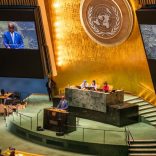
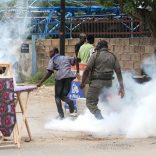
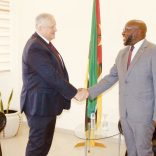
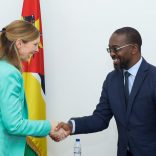
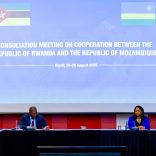






Leave a Reply
Be the First to Comment!
You must be logged in to post a comment.
You must be logged in to post a comment.